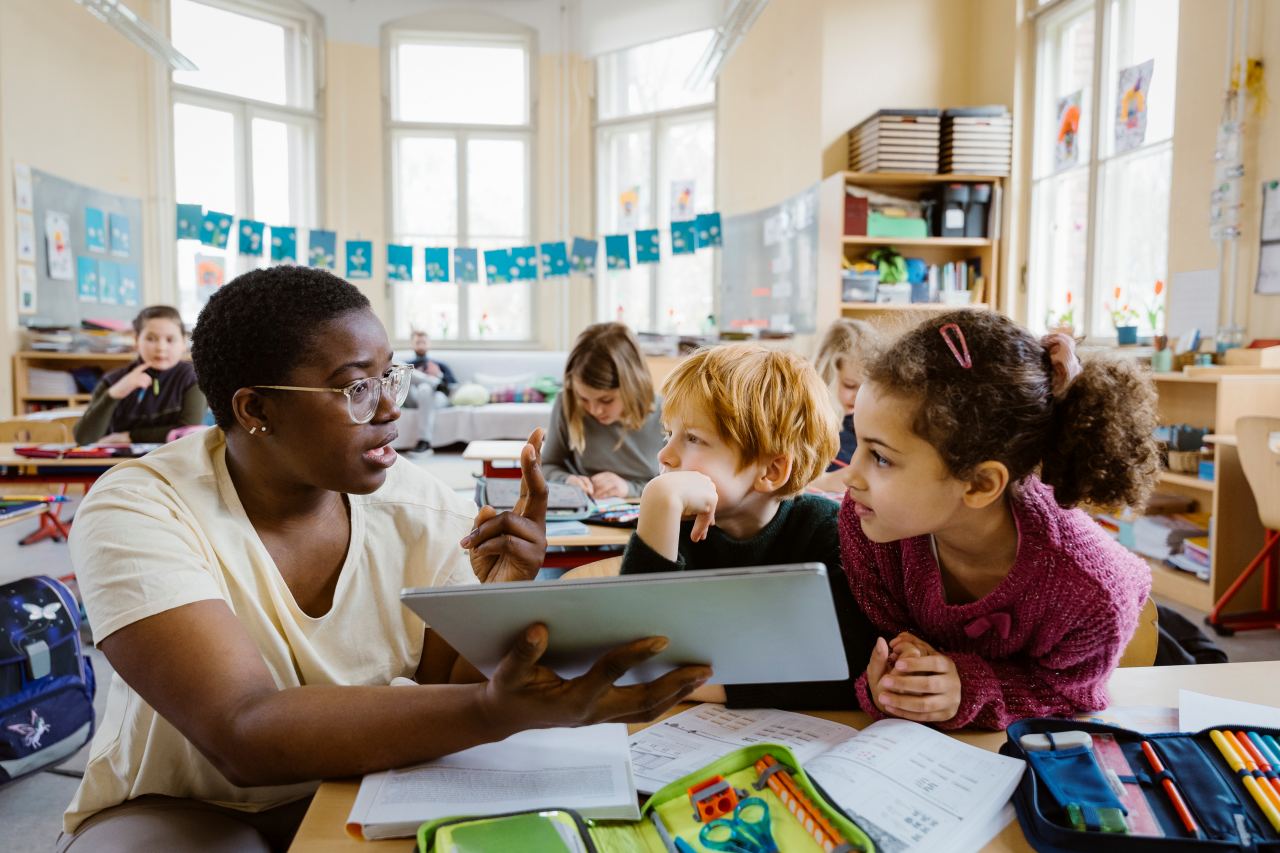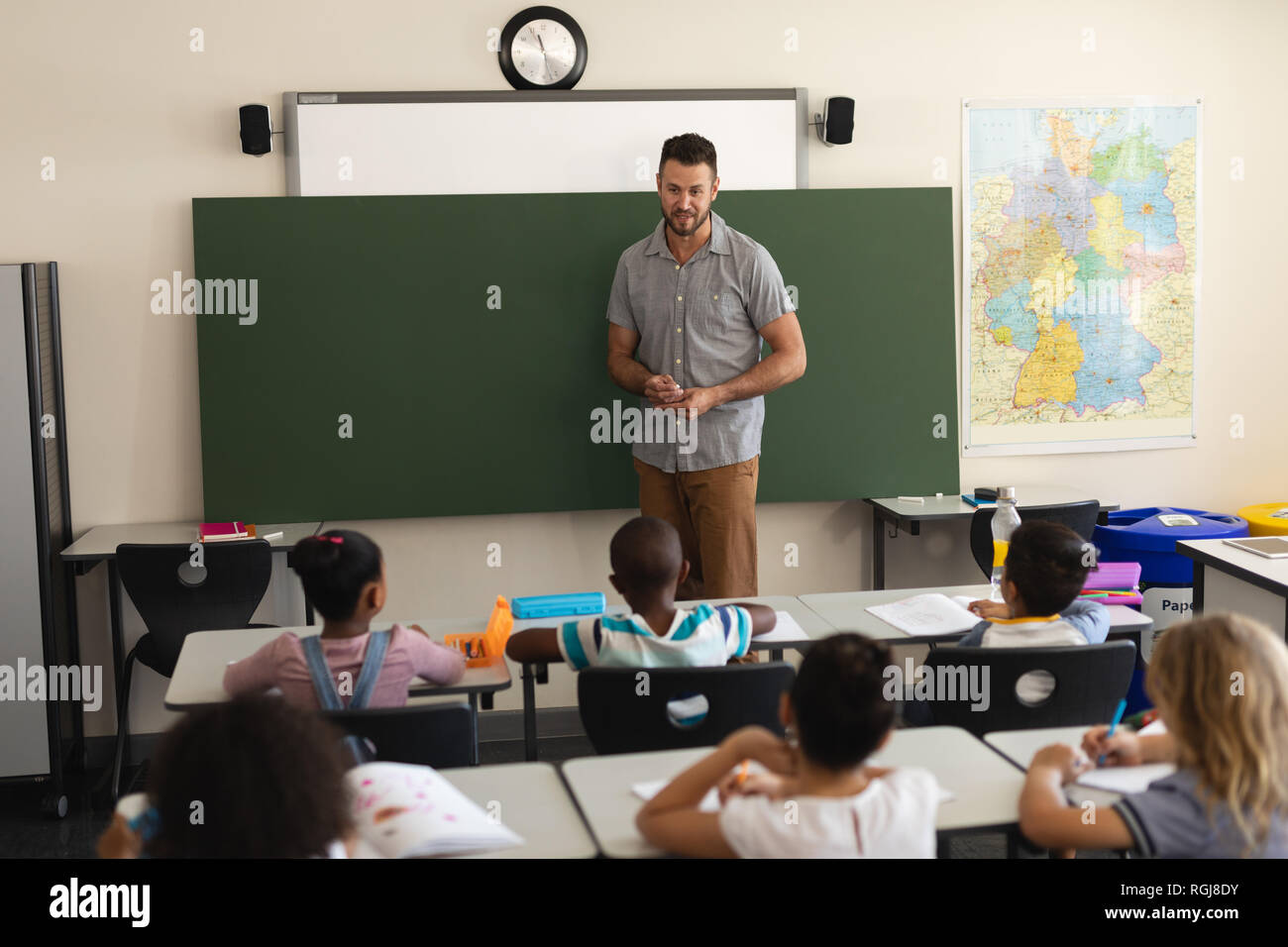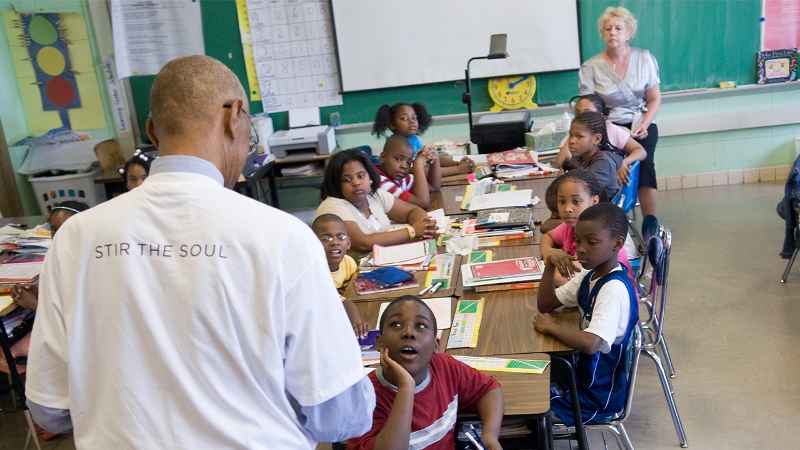Expert Primary Science Tuition Singapore for Understanding Complex Concepts
Expert Primary Science Tuition Singapore for Understanding Complex Concepts
Blog Article
Discovering the Different Mentor Techniques in Primary Science Education And Learning Today
Inquiry-based discovering, hands-on experiments, and the combination of innovation are redefining just how educators involve young minds. Additionally, collective strategies and separated instruction are being employed to cater to the varied demands of pupils, improving both engagement and understanding.
Inquiry-Based Knowing
Inquiry-Based Understanding (IBL) is an instructional method that urges pupils to check out clinical concepts with doubting, examination, and hands-on experimentation. This technique emphasizes the duty of trainees as energetic participants in their learning, advertising critical thinking and analytic abilities. By engaging with real-world concerns, trainees end up being interested and inspired, which boosts their understanding of clinical principles.
In IBL, teachers act as facilitators, leading trainees as they navigate their queries as opposed to delivering details directly. This student-centered strategy permits for differentiation, accommodating various learning rates and designs. Trainees create skills in developing hypotheses, creating experiments, and assessing information, which are essential for scientific proficiency.
Furthermore, IBL cultivates collaboration among students, motivating them to share ideas and findings. This cumulative questions advertises social abilities and a feeling of area within the classroom. In addition, the process of questions encourages strength, as students find out to welcome failure as a tipping rock toward understanding.
Hands-On Experiments
Hands-on experiments are a crucial part of effective science education and learning, complementing the concepts of inquiry-based discovering. These experiments permit pupils to engage directly with clinical ideas, promoting a deeper understanding with experiential discovering. By controling materials and observing end results, young students can comprehend abstract concepts in tangible methods.
Such activities advertise important thinking and analytical skills, as students hypothesize end results, conduct experiments, and evaluate outcomes. This process encourages them to ask concerns, improve their understanding, and create a scientific way of thinking. Hands-on experiments can be customized to varied discovering designs, making sure that all pupils have the possibility to engage meaningfully with the web content.
In addition, hands-on experiments frequently motivate partnership among peers, advertising teamwork and interaction abilities. Functioning in groups makes it possible for trainees to share ideas, talk about findings, and pick up from each other, which enhances their overall educational experience.
Integrating hands-on experiments right into the main scientific research educational program not only enriches the learning atmosphere however likewise grows a long-lasting rate of interest in science. By actively taking part in their education and learning, pupils are most likely to establish an enthusiasm for scientific query that prolongs past the classroom.

Modern Technology Combination
Integrating technology right into key scientific research education has ended up being increasingly essential in promoting trainee engagement and boosting discovering end results. Using digital devices, such as interactive simulations, virtual laboratories, and academic software program, supplies pupils with opportunities to discover clinical principles in ingenious methods. These resources facilitate a deeper understanding of complicated subjects by enabling students to picture and manipulate variables that would be unwise in a standard classroom setup.
Additionally, technology integration encourages individualized finding out experiences. Students can proceed at their very own speed, reviewing challenging concepts through multimedia sources, which cater to various knowing designs. This versatility not just supports private growth however additionally grows a sense of freedom in learners.
Furthermore, technology works as a bridge to real-world science, linking trainees with present research study and expert payments. Access to clinical journals and on the internet data sources expands trainees' point of views on clinical questions and cultivates critical believing skills.
Collaborative Knowing
Collaborative learning plays a vital role in main science education and learning by promoting teamwork and communication skills among students. This method urges students to collaborate, share knowledge, and take part in problem-solving, which improves their understanding of clinical ideas. By participating in group tasks, students learn to express their ideas, listen to varied point of views, and discuss services, every one of which are necessary abilities in both real-world and academic contexts.

Study suggests that joint knowing can cause boosted inspiration and interaction in science topics, as students locate enjoyment in common experiences (primary science tuition Singapore). Furthermore, this approach prepares trainees for future joint undertakings, furnishing them with the skills necessary for reliable synergy in college and specialist settings. Ultimately, welcoming joint learning in primary science education and learning can considerably improve the internet discovering experience and promote a much deeper understanding of scientific query
Separated Guideline

Set apart direction can manifest in numerous means, such as differing the material, procedures, or items of learning. For example, educators might make use of tiered projects that offer varying degrees of intricacy, enabling trainees to operate at their particular Check This Out readiness degrees. Furthermore, versatile organizing methods can assist in collaboration amongst trainees with various capabilities, fostering peer learning.
Evaluation plays an essential role in this technique, as it educates instruction and helps instructors understand each pupil's unique requirements. Developmental evaluations, such as quizzes and observations, can assist teachers in changing their techniques to improve discovering end results. primary science tuition Singapore. Ultimately, by carrying out separated guideline in main scientific research education, educators can cultivate a much more equitable and effective understanding environment, equipping all pupils to reach their complete capacity in comprehending clinical sensations
Verdict
In recap, the diverse training techniques in main science education and learning, including inquiry-based understanding, hands-on experiments, technology combination, collective understanding, and differentiated direction, collectively contribute to a much more reliable discovering environment. These approaches promote critical reasoning, analytical abilities, and a much deeper comprehension of clinical principles. By executing these methods, instructors can create encouraging and engaging class that attend to the varied needs of trainees, ultimately cultivating a long-lasting interest in scientific research and improving scholastic achievement.
Inquiry-Based Discovering (IBL) is an instructional method that motivates pupils to check out clinical principles with questioning, investigation, and hands-on testing.Joint knowing plays an important function in key scientific research education by cultivating synergy and communication skills among pupils.Research study suggests that collaborative learning can lead to increased inspiration and engagement in science subjects, as pupils find pleasure in shared experiences.In cultivating a comprehensive learning environment, distinguished guideline arises as a crucial method to fit the varied demands and abilities of trainees in key scientific pop over to these guys research education. Ultimately, by executing set apart instruction in primary scientific research education, instructors can cultivate a more efficient and equitable knowing setting, equipping all trainees to reach their complete potential in comprehending clinical sensations.
Report this page